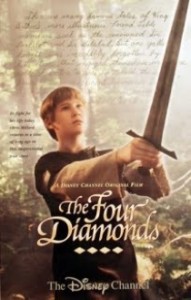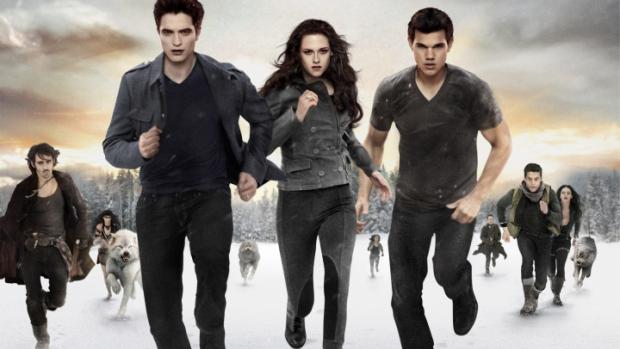“Back in the day.” It’s a phrase I am almost certainly too young to use, but one I find myself saying constantly, particularly in regard to film and television. Perhaps I am biased due to the blinders of nostalgia, or even worse I have become one of those grumpy old people that irritably shouts, “Kids these days!!” But I find that film and television targeted towards younger audiences has not just gone down hill – it has taken a swan dive off a cliff into the abyss.
The most apparent change in programming quality has occurred at the Disney Channel. (Saying this I realize I will now never get hired for that Disney semester internship where you get to work at Splash Mountain for four months, but it is a necessary sacrifice). I will stipulate that regardless of the year, not every Disney Channel Original Movie was a gem – some were down right awful – but from 1995 – circa 2005 many of the films were actually good. I do not mean good as in complex, full of plot twists, unpredictable, or Oscar worthy, but I mean good in the sense that they did not talk down to their audience. Many of them had substance. They were worth watching.

 The most powerful example of this is 1995’s “The Four Diamonds,” based on Christopher Millard’s battle with cancer and the story he wrote symbolizing the qualities one needs to conquer the disease – honesty, wisdom, courage, and strength. That movie is about something REAL, something worthy of everyone’s time, and has lessons that we could all learn. A similarly powerful film made in 2000 (set in 1977) discusses apartheid in South Africa. It centers on a young white South African girl who, through an exchange program, lives with a black family in D.C. and comes to understand the horrors of apartheid and racism. The film goes so far as to mention the brutal murder of Steven Biko (a prominent black singer who was horrifically tortured and beaten to death in South Africa at that time).
The most powerful example of this is 1995’s “The Four Diamonds,” based on Christopher Millard’s battle with cancer and the story he wrote symbolizing the qualities one needs to conquer the disease – honesty, wisdom, courage, and strength. That movie is about something REAL, something worthy of everyone’s time, and has lessons that we could all learn. A similarly powerful film made in 2000 (set in 1977) discusses apartheid in South Africa. It centers on a young white South African girl who, through an exchange program, lives with a black family in D.C. and comes to understand the horrors of apartheid and racism. The film goes so far as to mention the brutal murder of Steven Biko (a prominent black singer who was horrifically tortured and beaten to death in South Africa at that time).
Much less powerful but still worthwhile is 1999’s “Horse Sense,” about a spoiled rich college student who lives on his cousin’s ranch for three months to learn the value of hard work and family. When he learns that the ranch is swimming in so much debt that his family will have to sell it, he learns about pride, about earning rather than simply receiving, and humility.
 In the early 2000s the Disney Channel tackled gender stereotypes. First with 2001’s “Motocrossed,” about a girl who poses as her twin brother in order to compete in a motocross tournament so she can assist her family financially. This movie too showcases the importance of family, believing in yourself, and that women can do anything men can do. Second was “Eddie’s Million Dollar Cook-Off” in 2003, which attempts to destroy the stereotype that boys do not cook and only participate in sports. Third, also in 2003, was “Right on Track,” about two sisters who compete in junior drag racing, a male dominated sport.
In the early 2000s the Disney Channel tackled gender stereotypes. First with 2001’s “Motocrossed,” about a girl who poses as her twin brother in order to compete in a motocross tournament so she can assist her family financially. This movie too showcases the importance of family, believing in yourself, and that women can do anything men can do. Second was “Eddie’s Million Dollar Cook-Off” in 2003, which attempts to destroy the stereotype that boys do not cook and only participate in sports. Third, also in 2003, was “Right on Track,” about two sisters who compete in junior drag racing, a male dominated sport.
 Each of these films, and many others, discuss real issues and teach real lessons. That is why I can still watch “Johnny Tsunami” at age 18, because moving, making new friends in a place where you feel like you don’t belong, and struggling with family are all relatable issues. However, instead of portraying real issues and teaching real lessons, now the Disney Channel produces things like “Girl v Monster,” (a teenager cuts the power to her house in order to sneak past an alarm, which then somehow releases an evil monster. Oh and she comes from a family of monster hunters), “Frenemies,” (the title alone is horrid), or “Sharpay’s Fabulous Adventure,” (do I even need to comment?).
Each of these films, and many others, discuss real issues and teach real lessons. That is why I can still watch “Johnny Tsunami” at age 18, because moving, making new friends in a place where you feel like you don’t belong, and struggling with family are all relatable issues. However, instead of portraying real issues and teaching real lessons, now the Disney Channel produces things like “Girl v Monster,” (a teenager cuts the power to her house in order to sneak past an alarm, which then somehow releases an evil monster. Oh and she comes from a family of monster hunters), “Frenemies,” (the title alone is horrid), or “Sharpay’s Fabulous Adventure,” (do I even need to comment?).
What happened to the stories of substance? What happened to teaching lessons? What happened to not talking down to the audience? (I know it’s the Disney Channel and therefore every film has an obligatory happy and sugary ending, but really?). In my personal opinion, if the movies made now were anything like those created “back in the day,” we would see a film about teens struggling with sexuality. Or maybe we would see a film where someone struggles with getting teased for having two moms or two dads. Perhaps that is too much to ask, but I miss the films that showcased something relevant, something daring, something worthwhile. Alas, that has not happened, and I am stuck irritably shouting “Kids these days!!” at my television like a withering old lady while kids watch “Harriet the Spy: Blog Wars.”











